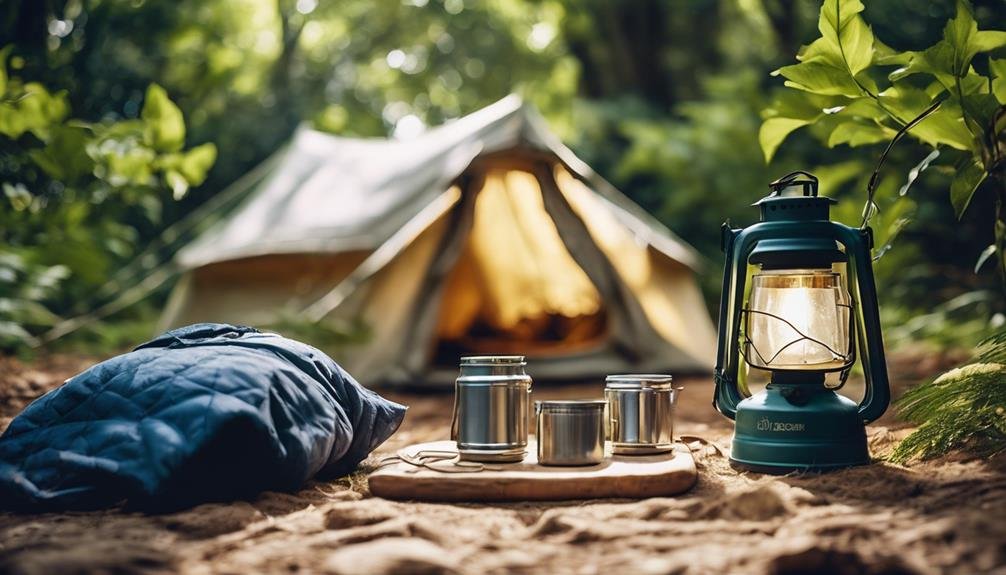
When I choose sustainable outdoor gear, I feel I'm making a difference. Brands like Patagonia and The North Face use recycled materials and eco-friendly practices, showing their commitment to the planet. Materials like hemp, Tencel, and recycled fabrics not only offer durability but also reduce waste and pollution. I'm impressed by how companies prioritize ethical manufacturing, ensuring fair labor and safe conditions. It's empowering to know that my choices align with a greener lifestyle. If you're curious about how to further enhance your outdoor experiences sustainably, there's plenty more to discover.
Key Takeaways
- Top brands like Patagonia and The North Face emphasize recycled materials and ethical practices, making a significant impact on sustainability in outdoor gear.
- Innovative materials like recycled fabrics and biodegradable components enhance durability while reducing landfill waste and environmental impact.
- Ethical manufacturing practices ensure fair labor standards and safe working conditions, promoting respect for workers and their rights.
- Eco-friendly certifications, such as GOTS and Fair Trade, guarantee sustainable and ethical manufacturing processes, providing transparency for consumers.
The Importance of Sustainable Gear
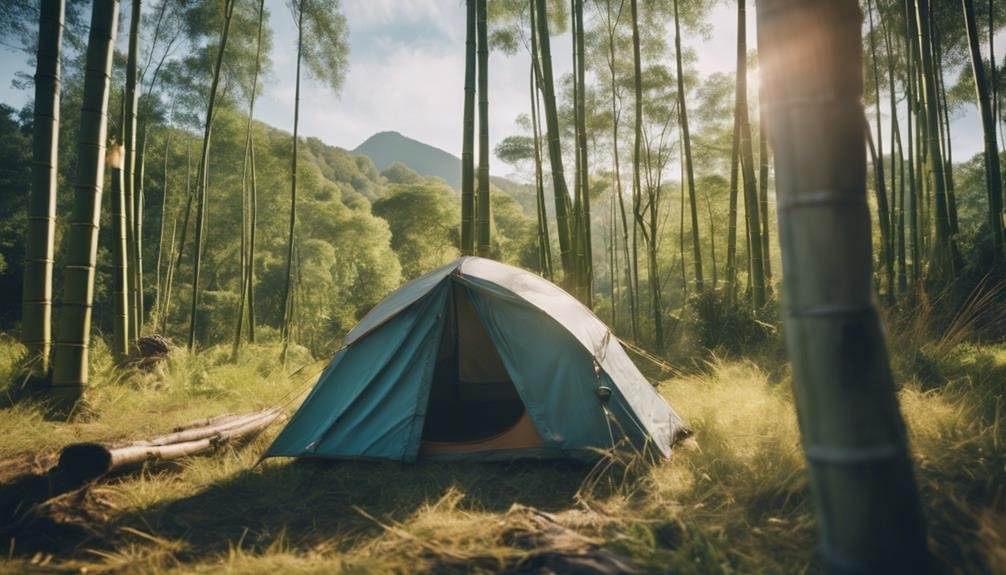
Sustainable gear isn't just a trend; it's a crucial step we can take to protect our planet while enjoying the great outdoors. When I choose outdoor gear, I consider the materials used and their lifecycles. Every decision I make impacts the environment, from the production process to the end of the product's life.
Conventional gear often relies on synthetic materials that contribute to pollution, while sustainable options prioritize eco-friendly materials like recycled plastics and organic fibers. These choices reduce the environmental impact of gear, which is essential in our fight against climate change.
I've realized that investing in durable, sustainable gear not only supports ethical practices but also enhances my outdoor experiences. When I use gear designed to last, I feel a deeper connection to nature, knowing I'm making a responsible choice.
Moreover, the lifecycles of sustainable products are often transparent, allowing me to understand how they're made and disposed of. This awareness empowers me to contribute positively to the planet. By embracing sustainable gear, I'm not just enjoying freedom in the wilderness; I'm also participating in a movement that champions our Earth's future.
Top Sustainable Outdoor Brands
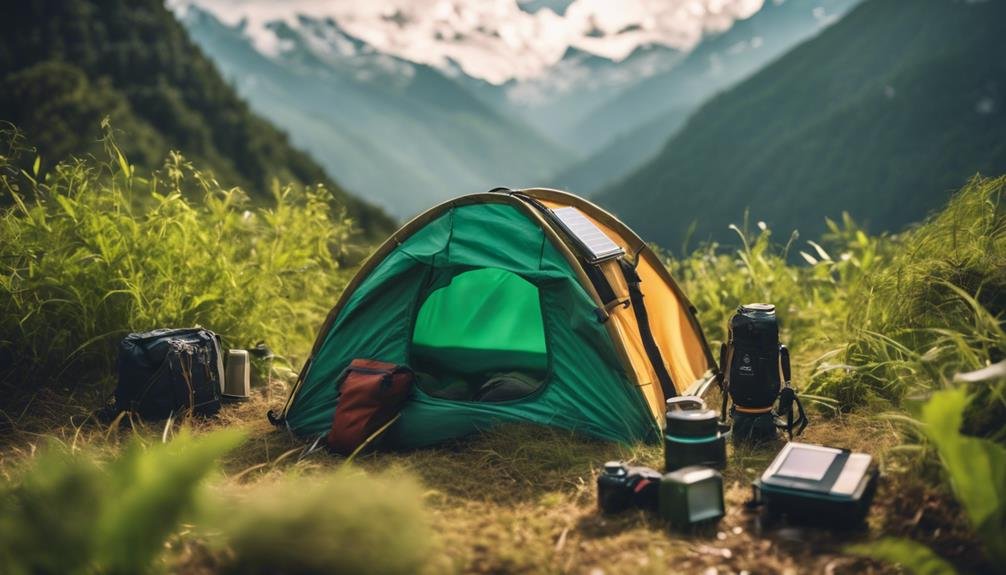
When I'm shopping for outdoor gear, I always seek out brands that prioritize environmental responsibility and ethical practices. It's empowering to know that my choices can contribute to a healthier planet.
Patagonia is known for its commitment to sustainability, using recycled materials and promoting fair labor practices.
The North Face has launched the "Clothes the Loop" program, encouraging recycling while creating eco-friendly outdoor apparel.
Arc'teryx combines performance with sustainability, focusing on durable, long-lasting products that reduce waste.
As a co-op, REI Co-op invests in the community and offers a range of sustainable gear, promoting responsible outdoor practices.
Choosing these outdoor apparel brands not only enhances my adventures but also aligns with my values. I feel free knowing I'm supporting companies dedicated to making a difference. The combination of ethical practices and innovative designs fuels my passion for exploring the great outdoors responsibly.
Innovative Materials in Outdoor Gear
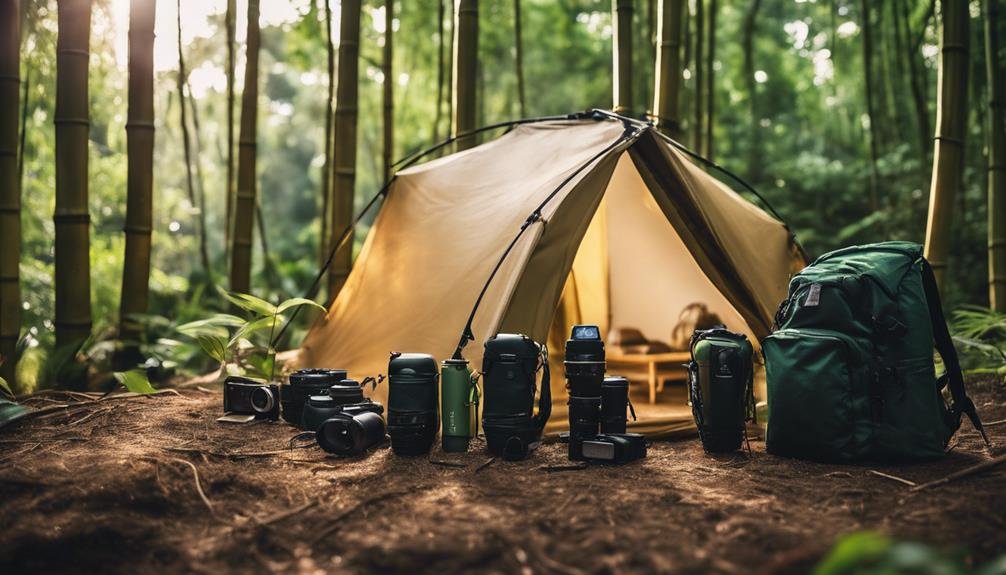
I'm excited to explore how innovative materials are transforming outdoor gear, particularly through the rise of recycled fabrics and biodegradable components.
These advancements not only reduce waste but also enhance performance, making our outdoor adventures more sustainable.
Recycled Fabrics Revolution
The shift towards recycled fabrics in outdoor gear is transforming how we think about performance and environmental responsibility. I'm excited to see brands embracing innovative solutions that not only enhance our adventures but also respect the planet.
Recycled fabrics and upcycled textiles are becoming the norm, and here's why they matter:
- Durability: Recycled materials can be just as strong as traditional ones, ensuring gear withstands the toughest conditions.
- Eco-Friendly Dyes: Many brands are using eco-friendly dyes, reducing harmful chemicals and pollution in the production process.
- Waste Reduction: By utilizing discarded materials, we're actively reducing waste that would otherwise end up in landfills.
- Versatility: These fabrics often feature unique textures and designs, allowing us to express our individuality while being eco-conscious.
With each piece of gear made from recycled fabrics, I feel a sense of freedom—freedom to explore the outdoors while supporting sustainability. As outdoor enthusiasts, we can take pride in our choices, knowing that our gear reflects our values. Let's embrace this recycled fabrics revolution and inspire others to join the movement!
Biodegradable Components Trend
Building on the momentum of recycled fabrics, the trend towards biodegradable components in outdoor gear offers an even more promising approach to sustainability, allowing us to enjoy nature without leaving a lasting footprint. This shift not only enhances our gear's performance but also aligns with our values. Using biodegradable materials means that when our beloved gear reaches the end of its life, it won't linger in landfills for centuries.
Many brands are now embracing this approach, incorporating recyclable components and biodegradable packaging into their products. It's exciting to see innovation that prioritizes our planet. Here's a snapshot of some key materials and their benefits:
| Material | Benefits | Brands Using It |
|---|---|---|
| Tencel | Soft, breathable, biodegradable | Patagonia, The North Face |
| Natural Rubber | Durable, compostable | Merrell, Vivo Barefoot |
| Organic Cotton | Sustainable, low-impact | prAna, Tentree |
| Hemp | Strong, naturally pest-resistant | Owyn, Fabletics |
| Biodegradable Plastics | Reduces landfill waste | BioLite, NEMO Equipment |
Let's embrace this movement, ensuring our adventures leave nothing but footprints. Together, we can enjoy the freedom of the outdoors responsibly!
Recycled Fabrics and Their Benefits
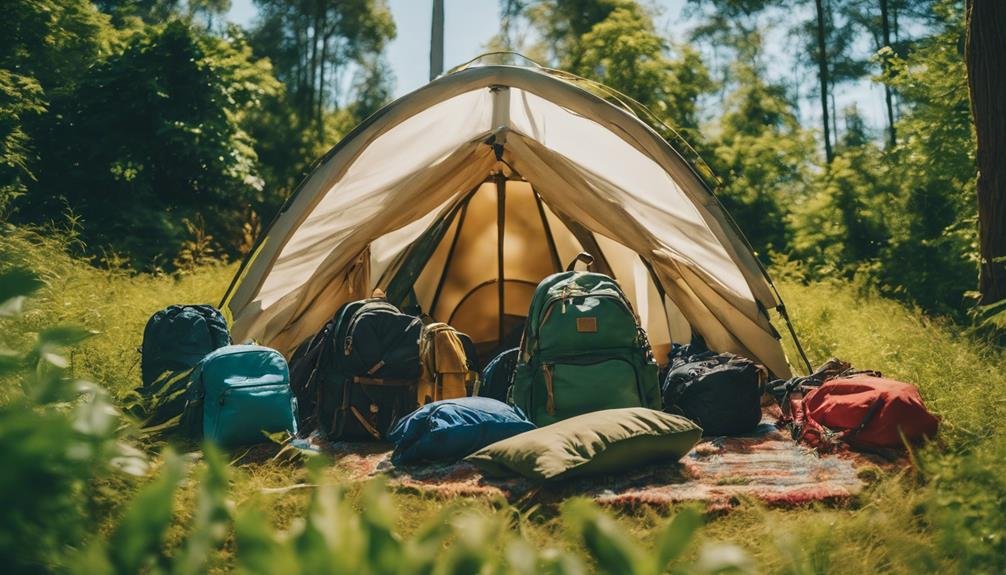
Recycled fabrics offer a sustainable solution for outdoor gear, reducing waste while providing durable and high-performance materials that enhance our adventures in nature. By choosing gear made from recyclable fibers, I'm not just making a personal choice—I'm contributing to a larger movement toward responsible consumption and sustainable fabric sourcing.
Environmental Impact: Utilizing recycled materials cuts down on landfill waste and lowers the need for virgin resources, decreasing our carbon footprint.
Durability: Many recycled fabrics are engineered for strength and resilience, ensuring they can withstand the rigors of outdoor activities.
Performance: These materials often feature moisture-wicking, quick-drying, and breathable properties, enhancing my comfort during adventures.
Innovation: Recycled fabrics stimulate creativity within the industry, encouraging brands to explore new designs and technologies that redefine outdoor gear.
Embracing recycled fabrics not only aligns with my values but also empowers me to enjoy nature responsibly. It's a win-win for my adventures and the planet.
Ethical Manufacturing Practices
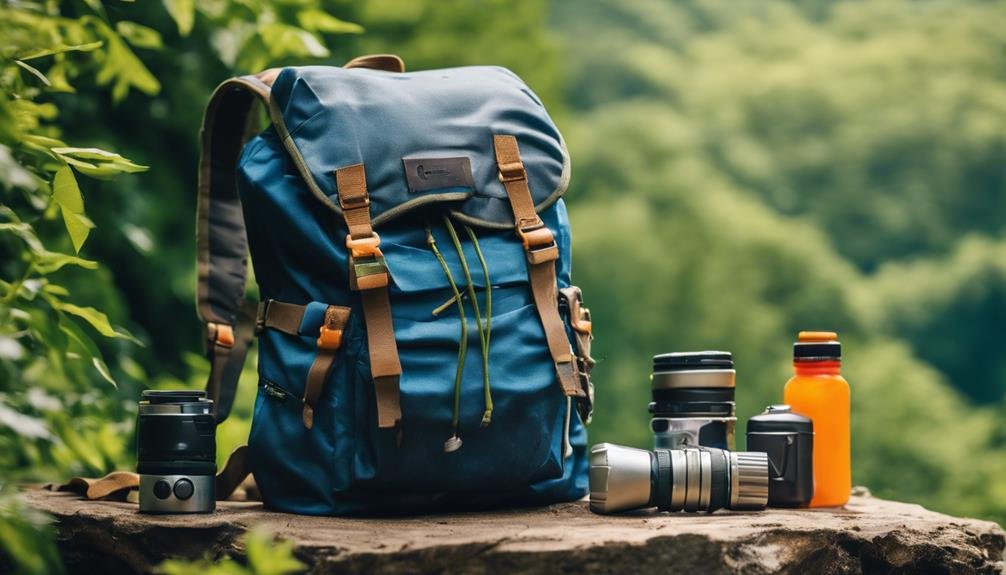
When I consider sustainable outdoor gear, I can't overlook the importance of ethical manufacturing practices.
Fair labor standards ensure that workers are treated with respect and dignity, while eco-friendly production processes minimize our environmental impact.
Fair Labor Standards
Ethical manufacturing practices are essential to ensuring that the outdoor gear I choose is made under fair labor standards, supporting workers' rights and promoting sustainable communities. When I invest in outdoor gear, I want to know that the people behind it are treated fairly.
Brands should prioritize hiring workers based on their skills and potential, not their background or socioeconomic status.
It's crucial that workers receive a living wage that allows them to support themselves and their families.
I want to support companies that ensure safe and healthy environments for their employees, free from exploitation and abuse.
Brands should openly share information about their manufacturing processes, showcasing their commitment to sustainable manufacturing methods.
Eco-Friendly Production Processes
Supporting fair labor standards naturally leads me to consider the eco-friendly production processes that many outdoor gear brands adopt to minimize their environmental impact while still prioritizing worker rights. It's inspiring to see companies embrace sustainable energy sources and renewable production materials, creating a path toward a more responsible outdoor industry.
Here's a quick look at some practices that are making a difference:
| Eco-Friendly Process | Impact on Environment |
|---|---|
| Use of sustainable energy sources | Reduces carbon footprint |
| Adoption of renewable materials | Decreases reliance on fossil fuels |
| Waste reduction initiatives | Minimizes landfill contributions |
These practices not only ensure the gear I choose is sustainably made, but they also foster a culture of accountability. Brands that prioritize eco-friendly production processes empower consumers like us to make choices that resonate with our values. By supporting these companies, we can enjoy our adventures while advocating for a healthier planet and equitable labor conditions. Choosing gear that aligns with these principles isn't just about freedom in the great outdoors; it's about ensuring that freedom extends to everyone involved in creating our gear.
Longevity and Durability in Gear
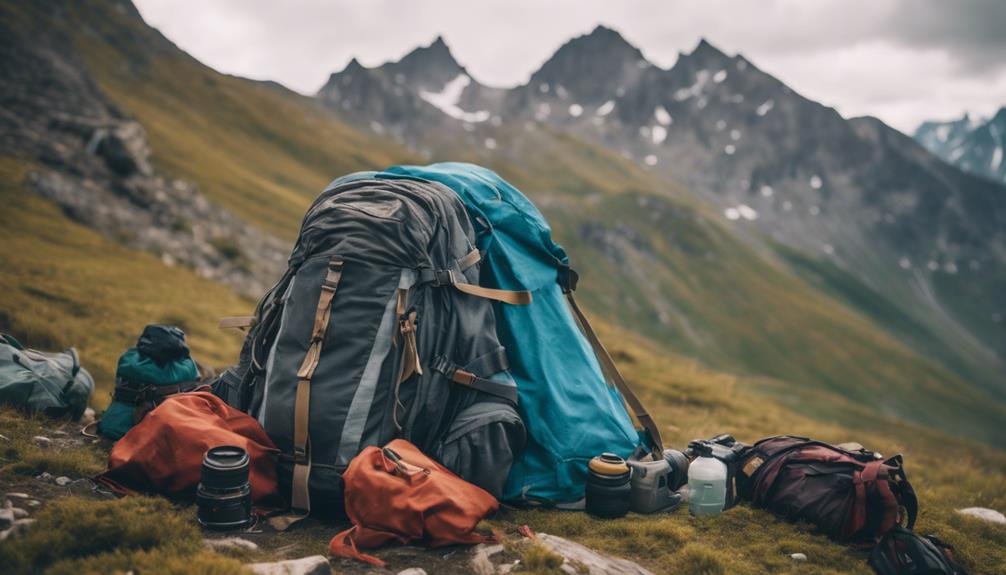
Longevity and durability are essential qualities I look for in outdoor gear, ensuring that my investment withstands the test of time and countless adventures. When I choose my gear, I prioritize not just the initial purchase but the long-term value it brings through product functionality and ease of repair and maintenance.
I opt for gear made from robust materials like ripstop nylon or recycled polyester, which resist wear and tear.
I love gear that adapts to different activities, making it more functional and reducing the need for multiple purchases.
I seek brands that offer repair services or provide parts, ensuring I can fix my gear instead of tossing it.
I choose designs that transcend trends, allowing me to enjoy my gear for years without feeling outdated.
Certifications to Look For
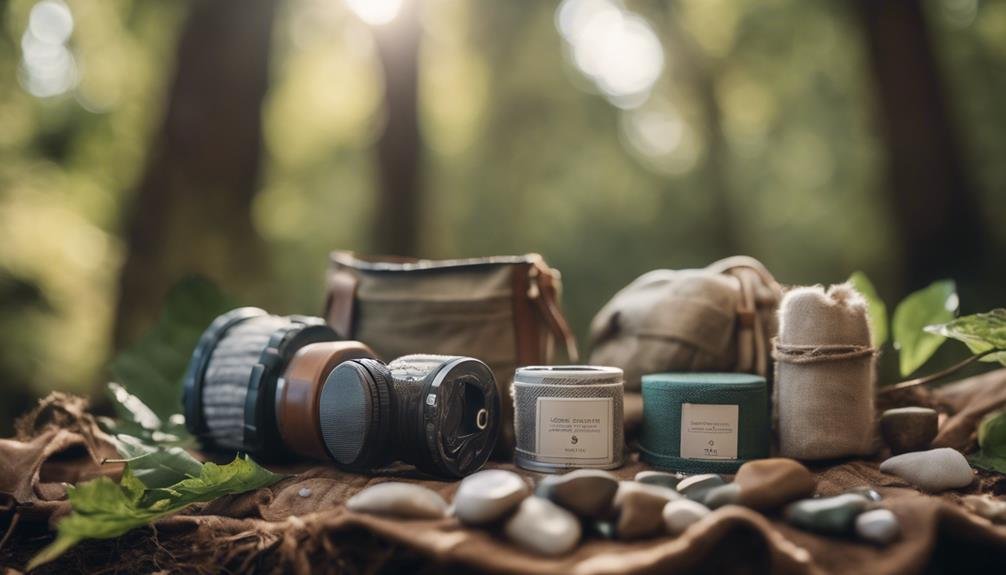
When I'm shopping for sustainable outdoor gear, I always check for specific certifications that guarantee eco-friendliness and ethical manufacturing.
These labels not only reflect a commitment to the environment but also ensure fair labor practices.
Eco-Friendly Certifications
As I explore the world of sustainable outdoor gear, I find that understanding eco-friendly certifications can significantly enhance my purchasing decisions. These certifications not only reflect a brand's commitment to the environment but also assure me that my choices align with my values.
Global Organic Textile Standard (GOTS): This certification guarantees that textiles are made from organic fibers and adhere to strict environmental and social criteria throughout the supply chain.
Fair Trade Certified: This mark ensures that the product was made under fair labor conditions, promoting sustainable liveelhoods for workers.
Bluesign®: This certification focuses on eco-friendly logistics and sustainable waste disposal practices in textile manufacturing, ensuring minimal impact on the environment.
OEKO-TEX® Standard 100: Products with this label have been tested for harmful substances, ensuring they're safe for both consumers and the environment.
Ethical Manufacturing Standards
While eco-friendly certifications guide my sustainable choices, understanding ethical manufacturing standards also plays a pivotal role in ensuring that the products I buy are made with integrity and respect for workers' rights. It's not just about the materials; it's about how those materials are sourced and transformed.
I look for brands that adhere to certifications like Fair Trade or the Global Organic Textile Standard (GOTS), as these indicate a conscientious supply chain.
Transparent labor policies are another critical aspect I consider. Companies that openly share their labor practices demonstrate a commitment to ethical standards. This transparency reassures me that workers are treated fairly, receive livable wages, and work in safe conditions.
When I invest in outdoor gear, I want to support brands that prioritize human rights alongside environmental health.
Eco-Friendly Accessories and Essentials
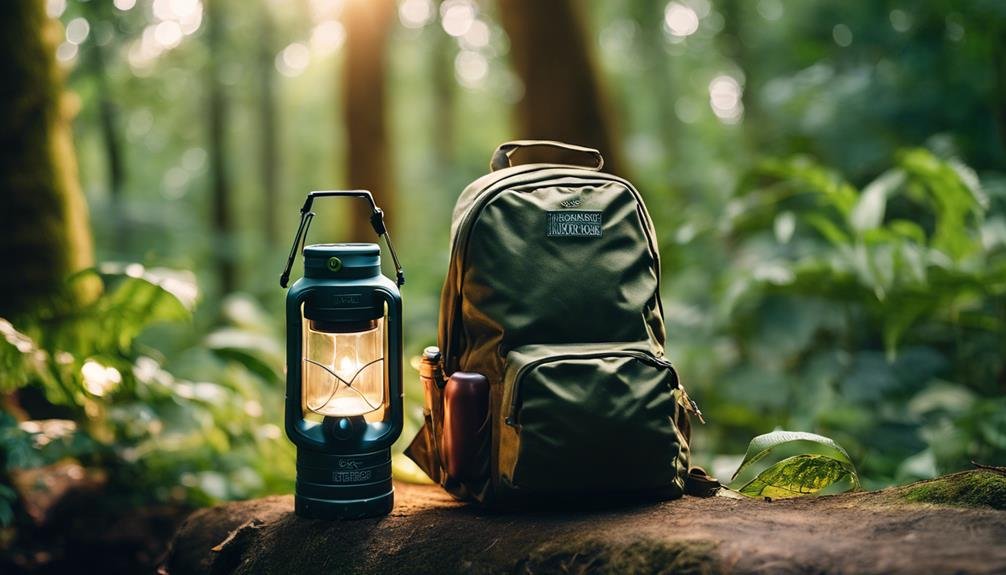
Eco-friendly accessories and essentials not only enhance our outdoor experience but also help protect the environment we love exploring. By choosing sustainable options, I feel empowered to make a difference.
Staying hydrated is crucial, and using bottles made from recycled materials cuts down on plastic waste.
I opt for sunscreens that are free from harmful chemicals to safeguard both my skin and marine ecosystems.
These chargers let me keep my devices powered while harnessing the sun's energy, reducing reliance on traditional electricity.
I love brands that encourage outdoor apparel reuse through effective recycling programs, helping to minimize textile waste.
The Role of Consumer Choices
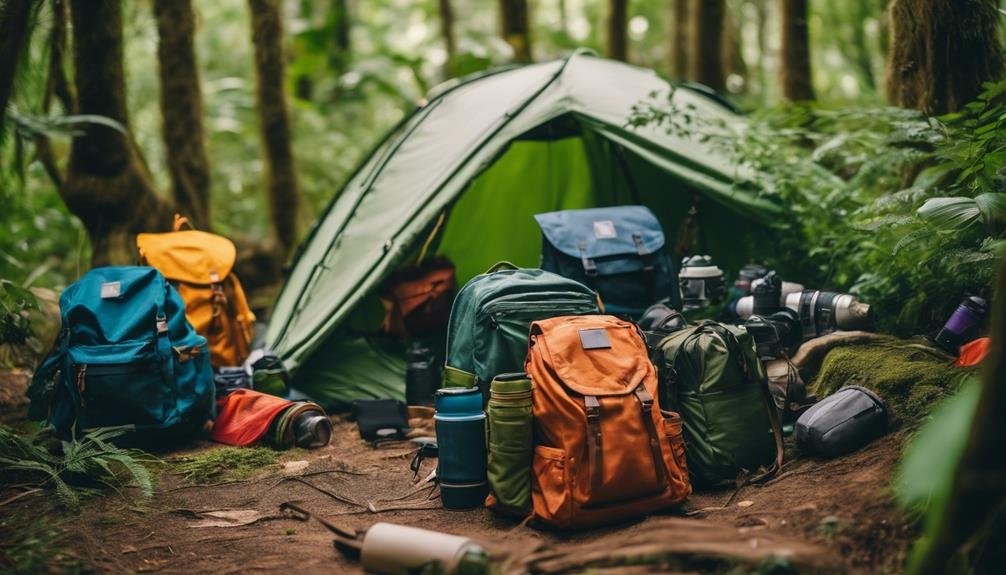
Consumer choices play a crucial role in driving the demand for sustainable outdoor gear, and I've seen firsthand how my decisions can impact the environment. When I choose products made from recycled materials or those crafted by ethical brands, I feel empowered, knowing I'm contributing to a healthier planet. This is where consumer mindfulness comes into play; it's about being aware of the effects our purchases have on the world around us.
By prioritizing sustainable purchasing, I not only support companies that care about our environment but also encourage others to do the same. Each time I select gear that's eco-friendly, I'm voting with my wallet for a future that values sustainability over convenience. It's exhilarating to know that my choices can help shift the market towards practices that are kinder to our earth.
I've found that embracing sustainable outdoor gear isn't just good for the planet; it enriches my outdoor experiences too. When I'm out exploring, I feel a connection to nature that's deeper because I know I'm doing my part. Every conscious choice is a step toward a freer, greener world, and I invite everyone to join me on this journey.
Future Trends in Sustainable Gear
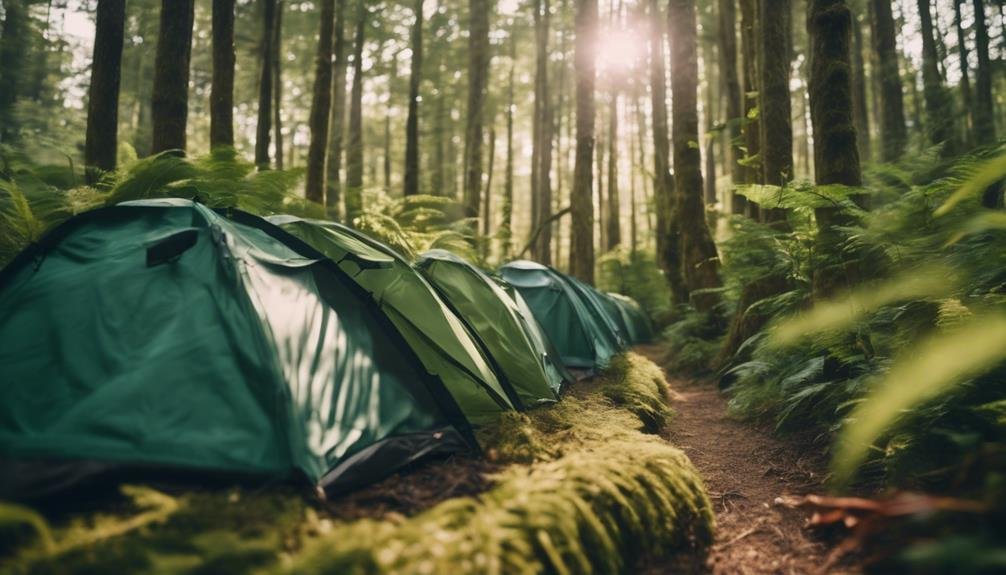
As I look ahead, it's clear that innovations in sustainable gear are set to revolutionize how we experience the outdoors, making it easier than ever for adventurers like me to choose environmentally-friendly options. I'm excited about what the future holds, especially as brands embrace eco-conscious practices.
Gear powered by solar and wind energy will become commonplace, providing us with clean energy while we explore.
Expect more products made from materials that break down naturally, reducing waste and pollution in our beautiful landscapes.
Companies will focus on creating gear that minimizes water usage during production, ensuring we protect this precious resource.
Brands will offer programs that encourage repairing gear instead of discarding it, promoting a mindset of sustainability.
With these advancements, I'm hopeful that our passion for adventure will align even more closely with our responsibility to protect the planet. Choosing sustainable gear isn't just a trend; it's a lifestyle that champions freedom while honoring nature.
Conclusion
As I reflect on the journey toward sustainable outdoor gear, I realize that every choice we make can gently nudge the industry toward a greener future.
By embracing brands that prioritize ethical practices and innovative materials, we not only enhance our adventures but also contribute to the well-being of our planet.
Let's continue to champion eco-friendly options, ensuring that our love for the outdoors harmonizes with the preservation of its beauty for generations to come.
